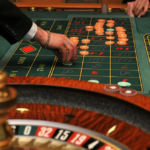Table of Contents
August 6th, 2020 4.00pm
German payment processing platform Wirecard made the headlines earlier this summer after it was revealed the majority of its operations were fictitious.
The company’s downfall was epic: on June 18, Wirecard was valued at around £10.6 billion, and only a week later, the payments giant had to file for insolvency.
It was soon discovered that around £1.6 billion were nowhere to be found, while the company claimed the money wasn’t lost, but held in two banks in the Philippines. The two banks quickly responded by saying they had no connections to Wirecard whatsoever.
What Did the Investigation Reveal?
The subsequent inquiry revealed that Wirecard had been processing payments for an online gambling company from Malta. This itself wouldn’t have been a big issue if the gambling operator hadn’t been associated with the Ndrangheta, one of the most powerful criminal organizations in Italy and Europe.
According to a report published by the Financial Times, Wirecard started processing payments for CenturionBet back in 2017, the very same year the Maltese operator was first accused of laundering money for the mafia. It was believed the operator was directly controlled by the Ndrangheta and used by the organization to launder its criminal proceeds. This complex operation allowed the organized mafia group to legally take millions of pounds out of the country.
The report further states that CenturionBet was closely linked to the Arena clan, an influential group from the southern Calabria region. Arena clan, one of the most powerful parts of the Ndrangheta was known for a wide list of illicit activities, from extortion to drug trafficking and illegal gambling.
It was also revealed the clan was running one of the largest migrant centres on the continent, the St. Anna centre for social rehabilitation and integration of refugees. Using the centre, the group managed to illegally take millions of pounds intended to be used for supporting migrants from Africa.
By the end of 2017, the Malta Gaming Authority, the country’s regulatory body, cancelled CenturionBet’s license. The license was suspended after the firm’s operations were halted in a major police investigation in Italy. The anti-mafia operation resulted in the arrest of more than 60 individuals, while the police seized around £18 million.
The Platform’s Downfall
The authorities are yet to determine the full scale of the payment processing firms’ wrongdoings. It remains to be seen whether Wirecard used fictional funds to increase its values and deceive its investors.
Markus Braun, the company’s Chief Executive Officer and the man responsible for the platform’s success in the 2000s, was arrested. The former Chief Operating Officer, Jan Marsalek, left the country.
All regulated payment processing companies are required by law to implement anti-money laundering rules and to report any suspicious activity to competent governmental agencies. The inquiry should give us an answer to why no one at Wirecard bothered to check their clients. There’s always a possibility the company was unaware their partners were associated with an organized criminal group, but the existing evidence says otherwise.
In the report, Financial Times did state that after the initial talks of CenturionBet’s links to the Ndrangheta, a compliance review was carried out, which the operator passed without any problems.
This could only be a beginning of a painful story for the disgraced company, as recently obtained legal documents show it moved funds for another Maltese gambling operator suspected to have laundered money for various criminal groups in Italy and across Europe.
German Finance Minister Olaf Scholz was quick to react, stating the entire sector needed changes, as the current structures weren’t doing their job. The Minister also said the government would introduce strict measures to prevent another Wirecard from happening in the future.
Wirecard became one of the leading payment processing companies in the 2000s
- Bonus Spins Never Stop at Luckster Casino - February 6, 2025
- Feel the Rush and Win in PlayFrank Casino’s Drop & Wins Slots Tourney - February 6, 2025
- Immortal Ways Cleopatra Slot by RubyPlay - February 5, 2025






